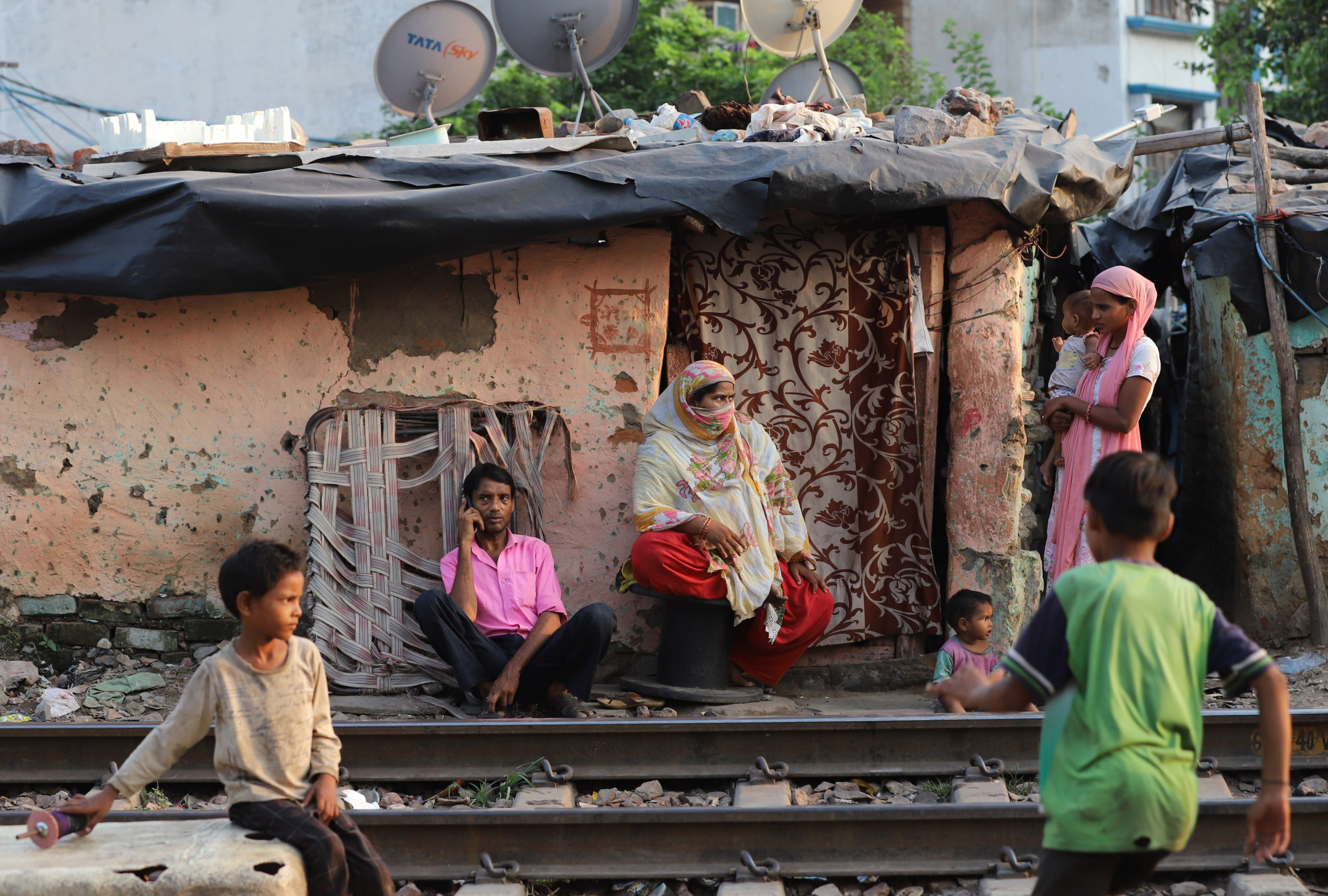
For the last one month, 43-year-old Anju Lata, who lives in JJ cluster behind Barapullah nalla in Nizamuddin region, with the help of her 16- year-old son, has been trying to book a slot for her. But they failed to do so because his son did not know how to book and even though he learnt, he got confused whenever slots opened.
“I don’t know how to use a phone, and everytime my son tries to book, the slots get full,” said Lata. She does beadwork with the help of her son, while her husband — a factory worker in Okhla — is out the whole day for work. “My husband got vaccinated, as his company booked slots for all workers but I couldn’t get it so far. We have only one phone, on which our son takes classes and plays games. So it has been tough for us to book.”
However, the Delhi government allowed vaccination without online registration. Between the 3PM to 6 PM window, people who are not tech savvy can go and get vaccinated. But Lata hasn’t tried it. “I get busy with my work, and I don’t know how much time it will take at the centre. So I didn’t go by offline registration.”
In the area where Anju lives, many between 18-44 years of age, especially women have not got vaccinated. Most important reason for this being the lack of smartphones, and the complicated process of registering at Cowin for slots.
So far there has not been any separate vaccination camp in Delhi for slum dwellers — while people in slums are living in unhygienic conditions, with less scope of social distancing. In Madrasi colony, a 35-year-old Senthil is also struggling to book slots. “In this basti, many haven’t got vaccinated. It’s a tough process, some of those who have got vaccinated, have received it through their employer,” he said.
Geeta is a domestic help who works in Jangpura residential houses. She got the jab with help of one of her employers who booked a slot for her. “My employer wanted me to join work only after I got vaccinated, so she herself booked a slot for me.”
However, vaccine hesitancy, which is the first hurdle in the vaccination process, is also keeping slum dwellers at bay. In Palam, where many people from Kanjar and Nat communities are living in makeshift homes on the roadside, they told us that they won’t take the vaccine, because they don’t require it.
“We have been staying here all through lockdown, nothing happened. How can vaccines change things? We don’t need it. Those who take it fall sick.” said Kamlesh, who does clay work in Palam.
Rinku Arya, a young social worker who has been visiting slums told us, “Many don’t know the process of how to book slots, and also some people are afraid of vaccines. There is a lack of awareness among people.”
Help by NGOs and social worker
While people are struggling to book slots and get vaccines, some NGOs and social workers are helping residents to do so. Turn Your Concern into Action (TYCIA), one such NGO, has been running a vaccine express to help people book slots and address vaccine hesitancy.
Rakesh Kumar, who is leading a vaccine express, told the Patriot, “Our volunteers are visiting various slums in Delhi, whoever is facing difficulty in booking slots, our volunteers help them to book,” he said.
“We have also issued a helpline number for those who are facing hesitancy. Our experts counsel these people,” Rakesh informed us that TYCIA has deployed autos, e-rickshaw, and bikes that go into slums where they announce the benefits of vaccines through a loudspeaker and ask people to come and register. Kumar said that TYCIA will try to reach every slum in Delhi.
Need for a special vaccination camp
Due to lack of smartphones, vaccine hesitancy, there is a huge requirement of a special vaccination drive for slum dwellers, as vaccination in Delhi, so far, has benefited only the privileged.
“Government should think about the poor. How will we get vaccinated on our own? We don’t know how to use phones, and vaccines in private hospitals are expensive,” said Rambabu, a construction worker.
However, the health department in Gurugram has launched a special vaccination camp for nine days starting from July 1 in rural slums. A bus will be used for the process, which will first go to Tigra, then Wazirabad and finally Nathupur. No pre-registration is required.
Quite similar drive has been launched by New Delhi district administration to inoculate homeless, transgender and PwDs. The chief secretary of Delhi Vijay Dev launched an eco-friendly mobile bus at shelter homes near Bangla Sahib.
But Delhi needs more such efforts as a large number of people in slums are not vaccinated and Covid third wave is knocking the doors.
(Cover: Slum dwellers are seen doing household chores during their daily lives along railway tracks in New Delhi, India on September 15, 2020 // via Getty Images)
Delhi hosted what organisers describe as the world’s first player auction in golf, launching ‘72…
An elderly woman recalls how her six-year-old granddaughter lay bleeding after a speeding car hit…
Municipal Corporation of Delhi plans a unified policy enabling RWAs to adopt and maintain parks…
A 17-year-old boy allegedly died by suicide after jumping before a moving train at Uttam…
Delhi High Court grants bail to 26-year-old Thar driver accused of mowing down two in…
Two Rohini men arrested for fatally stabbing one person and injuring another during a robbery…